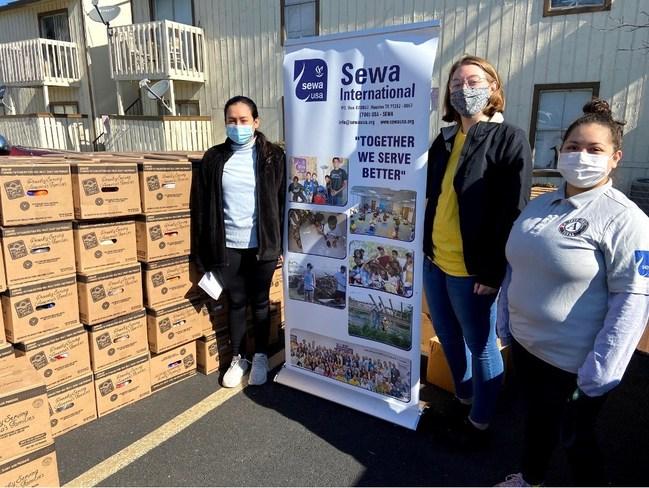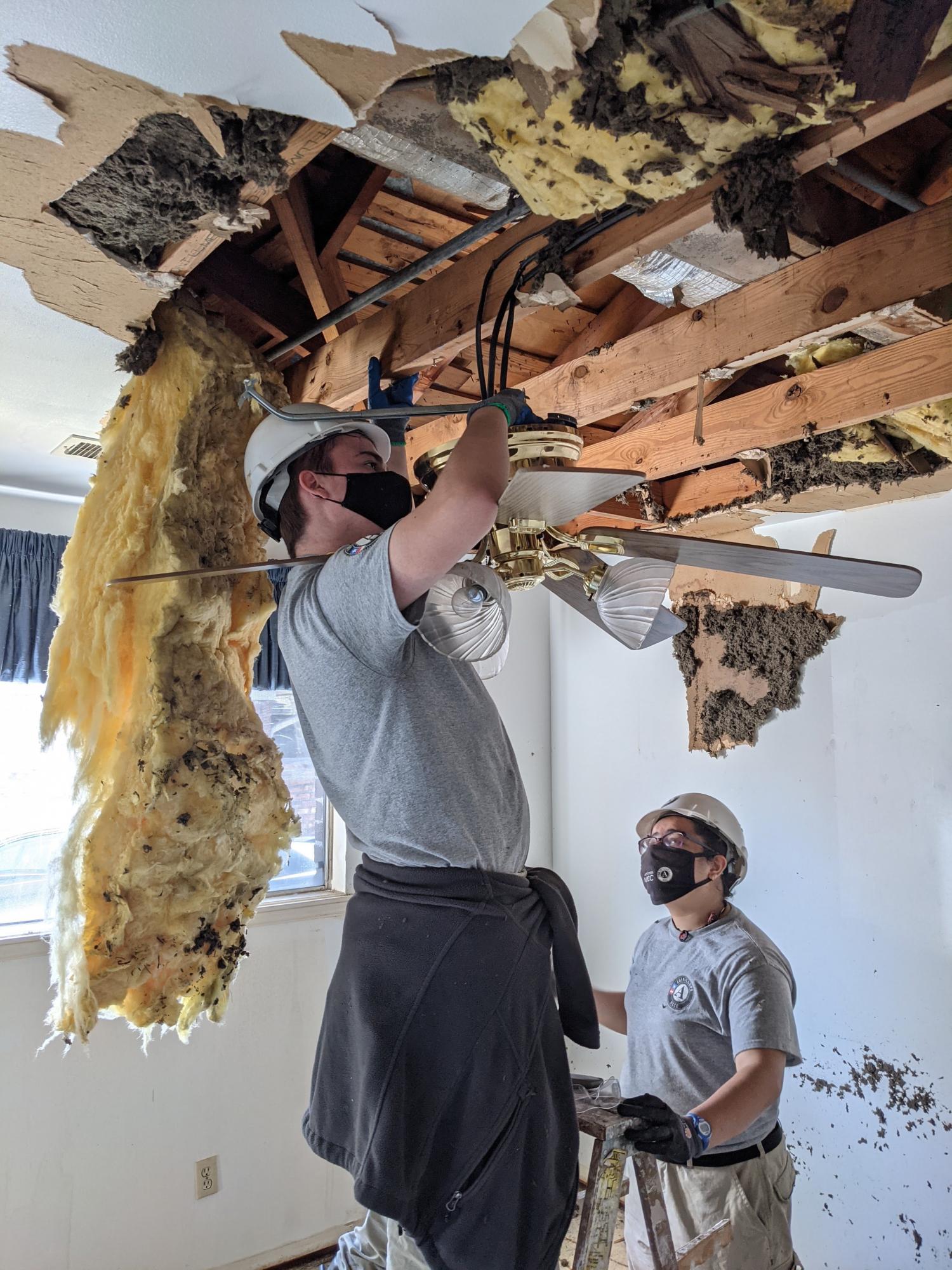Over my lifetime, I have seen tropical storms turn downtown Houston into a lake, and hurricane after hurricane devastate my hometown. For a city that saw three 500-year floods in three years, including Harvey, we Houstonians are a resilient community. Nothing prepared us for what we experienced last week. While much of the country was stuck at home due to the frigid weather of Winter Storm Uri, millions of Americans across Oklahoma, New Mexico, and my home state of Texas experienced the coldest temperatures ever recorded, losing power and heat for days. Many of us warmed ourselves by sleeping in our cars or burning our furniture as our bathtubs turned to ice. Pipes burst all over the city and many still are without safe drinking water in our homes. The collective trauma experienced in one week is hard to capture in words. In times like these, patriotic Americans committed to national service, collectively known as AmeriCorps, rise to the challenge and go where they are needed.
Today, President Biden is in Houston to survey the aftermath, meet with neighbors whose lives were completely upended less than a week ago, and serve with local community volunteers at the Houston Food Bank. Even before the storm, national service members were serving in Texas, supporting local nonprofit and faith-based organizations providing COVID-19 relief. When the storm hit, AmeriCorps members in Houston and across the state quickly pivoted to help families assess damages, begin cleanup and start down the road to recovery.
AmeriCorps members in the NCCC program were already working with local nonprofit The Restoration Team to provide residents continuing Hurricane Harvey recovery support. They quickly shifted their focus and began cleaning up homes that suffered water damage in the wake of the storm. Removing water-logged sheet rock and carpeting, installing temporary insulation, and conducting mold remediation, these members are making homes safer for storm-affected Texans.
As I helped clean and document storm-damaged houses in Houston’s 5th Ward on February 21, the first volunteer I met was Andrew, an AmeriCorps alumnus, whose life was changed by national service. As soon as he was sure his family was safe and was able to leave his own home, he was out helping others who were not so lucky.

The diversity of members and organizations pitching in to serve is truly moving as the commitment to national service crosses all bounds of language, ethnicity, and religion. Sewa International, a Hindu faith-based organization comprised mainly of immigrants, has 18 AmeriCorps members serving alongside the organization, which provided information sessions in Spanish ahead of Uri to teach people who have never dealt with extreme cold before how to protect their pipes from freezing. And after the storm, they are still here, helping neighbors complete basic needs assessments and partnering with schools to provide resources for students and their families. With the help of their AmeriCorps members, Sewa International hosted a critical food drive last weekend, delivering more than 43,000 pounds of food and thousands of gallons of water to our community.

Other AmeriCorps members and AmeriCorps Seniors volunteers—along with the OneStar Foundation, Texas State Service Commission—are serving across the state at this moment to help neighbors find their way forward; SBP launched an unmet needs survey for community distribution while preparing to deploy more members to support disaster recovery efforts; CitySquare in Dallas is operating a high-volume food bank; Senior Source, one of AmeriCorps longest-serving RSVP programs, expanded its fraud prevention education program to support seniors who can be targeted for fraudulent relief programs; and College Advising Corps continues to assist rescue efforts saving sea turtles from freezing waters surrounding South Padre Island. This is just a small sampling of how national service is responding to communities here and around the country.
Houston is known as “Clutch City” because of a dramatic sports comeback 27 years ago. Yet, our greatest comebacks haven’t been on the basketball court, they’ve been from natural disasters. Throughout our country, people have been hit by unimaginable tragedies, but the reason we are able to come back again and again is because of the people who are willing to step up and serve their community when that community needs it the most.
That’s what I call being clutch.
Sri Kulkarni, a native Houstonian, serves as the chief of external affairs for AmeriCorps, the national service agency. More than 270,000 members serve in AmeriCorps and AmeriCorps Seniors programs across the country, committed to COVID-relief, economic and racial justice, disaster response, education, environmental stewardship, and a variety of local, state, and national volunteering and community service efforts.



